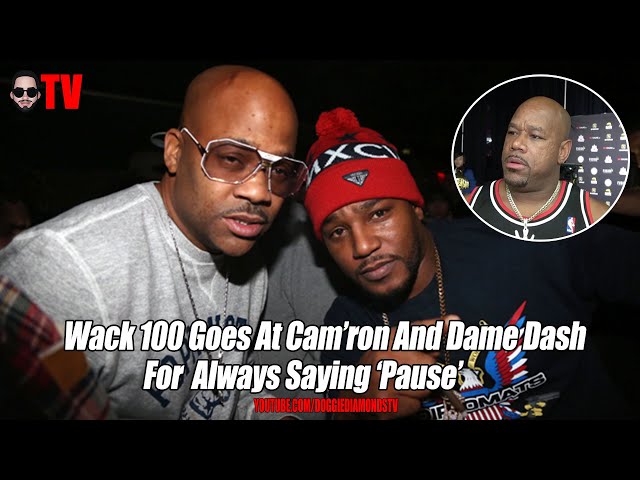Products You May Like
Wack 100 has once again stirred the pot in the hip-hop community, this time calling out well-known figures Cam’ron and Dame Dash for their frequent use of the phrase “pause.” During his appearance on The Rundown, Wack expressed his bewilderment over why the duo feels the need to pause after certain statements. This criticism has sparked a lively debate about the context and relevance of such phrases in hip-hop conversations.
The term “pause” has become a staple in urban vernacular, primarily used to humorously signal that a statement may have been ambiguous or could be misconstrued in a way that sounds inappropriate. However, Wack questions whether it’s time to retire this phrase, prompting fans and critics alike to evaluate its place in contemporary hip-hop culture. Is this a witty observation or merely another instance of industry squabbles? The hip-hop community is abuzz with opinions, dissecting Wack’s remarks and considering their implications.
Inherent to the debate is the larger question of language and expression in hip-hop. As artists and influencers evolve, so too do their lexicons. Those who champion Wack’s viewpoint argue that repetitive phrases can detract from the artistry and depth of conversation, while defenders of Cam’ron and Dash believe that such humor adds a unique flair to their dialogues.
This isn’t the first time Wack 100 has made headlines, and it likely won’t be the last. With his unapologetic approach, he often delves into controversial topics and confronts fellow artists on matters that seem trivial yet resonate deeply with listeners. The discussions that Wack initiates serve not only showcase the complexities of maintaining authenticity in hip-hop but also reveal the nuances of peer dynamics within the industry.
As the conversation continues to unfold, followers are eager to hear what Cam’ron and Dame Dash will say in response to Wack’s critique. Will they stand by their use of “pause,” or will they reconsider their linguistic choices in light of Wack’s comments? This unexpected back-and-forth highlights the vibrant and often unpredictable nature of hip-hop culture, where even the smallest exchanges can ignite passionate responses.
In the world of hip-hop journalism, figures like Doggie Diamonds are essential in bringing these discussions to the forefront. Known for his unfiltered take and commitment to sharing compelling narratives, Doggie Diamonds amplifies voices and promotes dialogue that challenges the status quo. His platform has become a key player in shaping perceptions and fostering rich interactions within the hip-hop space.
Wack 100’s remarks have certainly reignited conversations surrounding humor, language, and culture in hip-hop. As fans and artists alike reflect on these discussions, it’s clear that the power of words continues to evolve, just as the genre itself does. Whether it’s humorous banter or a serious critique, dialogues like these help shape the hip-hop narrative, leading us to question not only how we speak but also how we listen and respond to one another in an ever-changing landscape.
